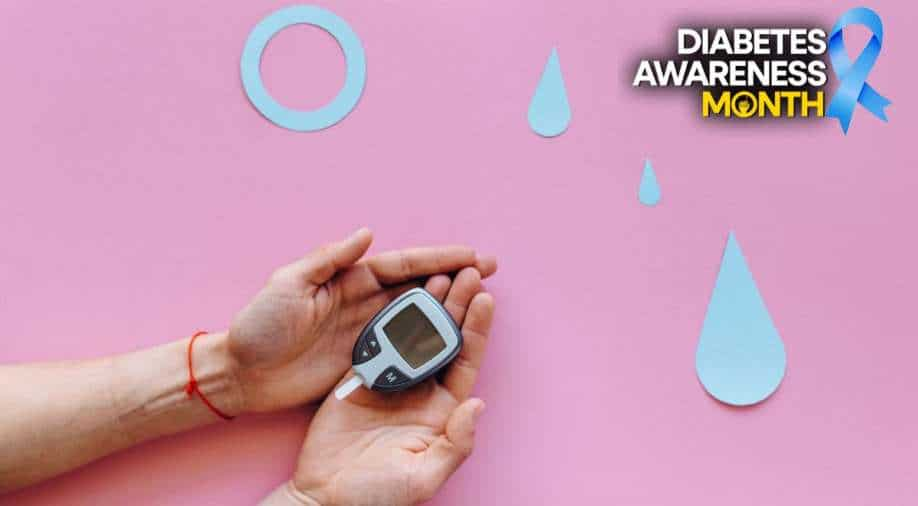Fertility and diabetes: Steps diabetic people can take to ensure sexual health
Story highlights
Managing diabetes effectively becomes crucial not only for symptom relief but also for preventing these potential complications and maintaining overall well-being. Scroll to know some tips!
Diabetes has become a global concern today affecting approximately 422 million people worldwide, according to the World Health Organization (WHO). Both men and women with diabetes encounter challenges related to fertility, pregnancy, and sexual health. It can cause adverse effects on sperm, embryo quality, and DNA integrity. This stems from the body's inability to effectively regulate glucose levels, resulting in elevated blood sugar levels.
For men, diabetes has been linked with low sperm production, reduced sex drive, decreased testosterone and can even lead to retrograde ejaculation. Diabetes in women can lead to irregular menstrual cycles and ovulation issues making conception difficult.
Glucose is a crucial element of one’s body, and insulin acts as the key to unlocking cells, allowing them to absorb and use this vital energy source. When this process falters, as in the case of diabetes, it can result in symptoms like heightened thirst, frequent urination, and fatigue.
trending now
The long-term impact of consistently elevated blood sugar levels is concerning. It can lead to damage in blood vessels, nerves, and organs throughout the body, giving rise to various health complications. Managing diabetes effectively becomes crucial not only for symptom relief but also for preventing these potential complications and maintaining overall well-being.
Also read: Can Diabetes affect your reproductive health? Medical expert answers | Diabetes Awareness Month 2023
Steps to ensure sexual health and well-being include:
Professional Guidance: Embarking on a successful pregnancy journey requires a foundation of mutual understanding and support. The initial step involves open communication with a healthcare professional. For those managing diabetes with medications or hypoglycemic agents, consulting with a doctor is paramount to determine the optimal and safe time for conception.
Regulate Blood Sugar Levels: In order to effectively manage gestational diabetes or type 2 diabetes, it is crucial to control your blood levels. Regular insulin checks and timely follow-ups are key to mitigating risks associated with diabetes while simultaneously improving conception chances.
Underlying Medical Conditions: Addressing any additional health concerns, such as those related to the heart, kidneys, or liver due to diabetes, is crucial before stepping into parenthood. Tackling these issues beforehand is essential as they can be dangerous during one’s fertility journey.
Exercises: Incorporating exercise into your routine is a valuable aspect of maintaining overall health and improving fertility rates. However, it's equally crucial to consult with your healthcare professional to ensure that your chosen physical activities align with your specific health needs and are safe for you. As part of a well-rounded approach to health, consider including Kegel and pelvic exercises. These exercises not only contribute to overall physical fitness but can also be particularly beneficial for enhancing sexual well-being.
Well-balanced Diet: A nutritious diet plays a pivotal role in effectively managing diabetes and promoting fertility. For women aiming to enhance both aspects, a well-rounded diet should encompass a variety of fruits, vegetables, lean protein sources, and healthy grains. It's advisable to restrict the consumption of calorie-dense, high-fat meals, and sugary beverages.
Paying Heed to Menstrual Cycles: Paying attention to the menstrual cycle is a key aspect of holistic health, especially for individuals managing diabetes. The menstrual cycle can indeed influence blood sugar levels by affecting the sensitivity of glucose and insulin, subsequently impacting metabolism.
Stress Reduction: Indulging in stress-reduction activities such as Yoga, meditation, and journaling helps facilitate sexual well-being.
Healthy Sleep Routine: Sleep is an important aspect of ensuring optimal health and well-being. A sound sleep for 6-8 hours is crucial for maintaining sexual and overall well-being.
(With inputs from Dr Sandeep Talwar, Infertility Specialist, Nova IVF Fertility, Vasant Vihar)
















